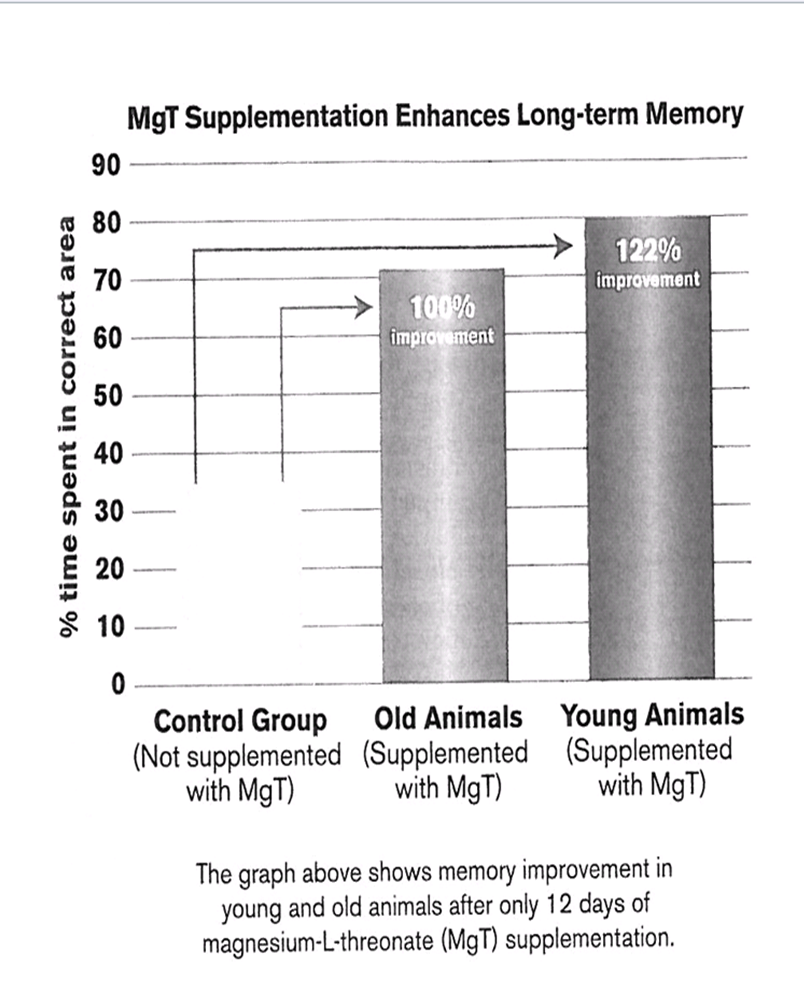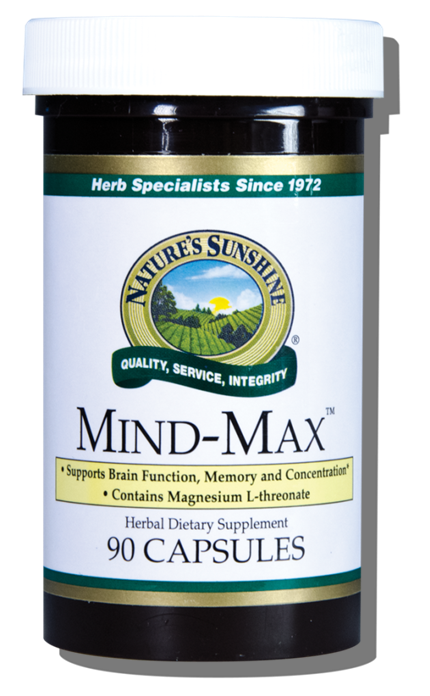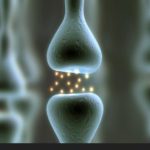[vc_row][vc_column][vc_column_text]As we age, our brain and cognitive functions decline. With the increase in life expectancy in America, greater percent of us are facing many brain related functional issues such as loss of memory, attention and focus. Science is finding that a decreased number of nerve synapses (the connections between nerve cells) as the reason for this cognitive decline. A higher concentration of synapses at the synaptic junctions in the brain directly correlates to better memory. Protecting and even increasing nerve synapses may thus promote brain health.
As you have seen from the video in my previous blog on Magnesium, Dr. Hyman correctly pointed out that Magnesium deficiency is disproportionally out of control within the US population. In fact, one study shows that at least half of US population are deficient in magnesium. There has also been found there is a direct correlation between brain magnesium deficiency with age. Confirming that magnesium is indeed a critical nutrient component for the well-being of our brain.
Here are a few correlations found between magnesium and brain’s biological activities: magnesium is very important in the development of the myelin sheath, a thin insulating layer that is critical for proper control of the millions of electrical signals fired among the nerve cells. Magnesium is critical in the activation process of the sodium and potassium pump which in turn generates the electrical signals in our brain. Magnesium is also the necessary catalyst to aid the refining of the omega3 fatty acids to DHA, which is the key omega3 used by our brain. Lastly, magnesium is the necessary ingredient in converting sugar into brain cell energy.
Unfortunately, most forms of magnesium on the market today won’t have enough impact on our brain functions. Primary reason being, the commonly used forms of magnesium cannot cross the blood-brain barrier and thereby are not readily absorbed by nervous tissue for sufficient neuro-pathic impact.
That is until researchers at MIT found a highly absorbable form of magnesium – Magnesium L-Threonate – which has been shown in studies to easily cross the blood-brain barrier and increase the brain’s magnesium level. In their studies, researchers found that both young and old animals experienced increased cognitive function while taking Magnesium L-Threonate. They have found that elevation of brain magnesium had a positive effect in the hippocampus and the prefrontal cortex regions of the brain. This implies not only Magnesium L-Threonate has the potential to improve short and long term memory, attention span, and concentration, it also may play a role in reduction of anxiety-like behavior.

Inna Slutsky, Nashat Abumaria, Long-Jun Wu, Chao Huang, Ling Zhang, Bo Li, Xiang Zhao, Arvind Govindarajan, Ming-Gao Zhao, Min Zhuo, Susumu Tonegawa and Guosong Liu. Enhancement of Learning and Memory by Elevating Brain Magnesium. Neuron, Jan. 28, 2010
The above scientific data shows that 100% of lab animals with old age demonstrated improvement in long-term memory, while 122% improvement was observed among the younger animal population. Pretty definitive result, I would say.
Are you ready to maximize your brain function? Nature’s Sunshine’s new product Mind-Max may just be the answer that you are looking for. Mind-Max contains the following brain function enhancing super nutrients:
[/vc_column_text][vc_cta h2=””]
* Magnesium L-Threonate
* Gotu kola aerial part of the herb
* Bacopa leaf
* Ginkgo leaf
[/vc_cta][vc_column_text]
Call us at 512-310-8880 or 512-528-0130 to find out more about this product.[/vc_column_text][/vc_column][/vc_row]


The results of that study are certainly fascinating, what is interesting is that the young seem to have an increased benefit to MgT. I wonder if that is because the brain is younger and thus more able to change or if there are other theories to the increase?
Thanks for sharing your info. I really appreciate your efforts and I
will be waiting for your next write ups thank you once again.